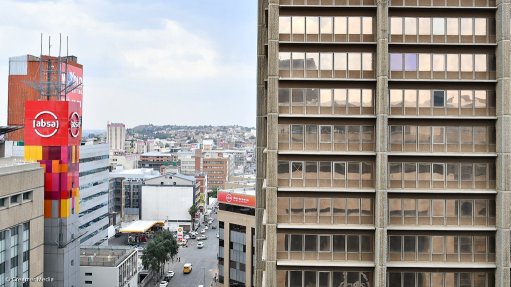Protecting South Africa’s chrome future
The word ‘chrome’ originates from the Greek word chróma, meaning ‘colour’. The chemical element chromium was named by French chemist Louis Nicolas Vauquelin in 1797, inspired by its vibrant colours resembling bright orange-red needles.
Vauquelin named the new element as he discovered it by isolating it from a mineral known as crocoite or Siberian red lead. Its last name is attributable to the fact that it was found in Siberia, Russia. In case you were wondering, it is still mined in Siberia – specifically, in the Republic of Sakha. However, operations are limited to the warm summer months.
Fun fact: chromite, the ore from which chromium is extracted, was discovered in 1865 in South Africa. However, this discovery was not exploited for economic purposes until nearly 50 years later. South Africa is now the world’s leading producer of chromite ore.
This brings us to the Department of Trade, Industry and Competition’s (dtic’s) Government Gazette notice published on October 3 and titled ‘Inviting Public Comment on the Placing of Chrome Ore under Export Control’, for which public comments must be submitted by October 31.
The purpose of the notice was to inform stakeholders and interested parties of a Cabinet decision, taken on June 25, aimed at reviving South Africa’s chrome industry. The notice also invited public comments on the decision to place chrome ore, classifiable under tariff subheading 2610.00, under export control by the International Trade Administration Commission of South Africa (Itac). This, along with other interventions, is designed to improve the long-term viability and competitiveness of the chrome value chain in South Africa.
The South African chrome value chain, which is a significant contributor to the country’s mining and industrial base, has experienced a steady decline in recent years, owing to a combination of binding constraints, including rising electricity costs, global market pressures and the unregulated export of raw chrome ore. In response, the South African Cabinet has endorsed a coordinated intervention by government and industry stakeholders to stabilise and revitalise the chrome value chain. The Cabinet decision includes placing chrome ore under export control by Itac.
The decision to place chrome ore under export control recognises the strategic importance of the chrome value chain in supporting South Africa’s industrialisation goals and mineral beneficiation strategy, including the value addition of raw minerals close to the source of mining extraction. The introduction of export control on chrome ore will be carried out under the International Trade Administration Act, 2002, which authorises the Minister of Trade, Industry and Competition to regulate imports and exports. The Act provides that “the Minister may, by notice in the Government Gazette, prescribe that no goods of a specified class or kind, or no goods other than goods of a specified class or kind, may be exported from South Africa, except under the authority of and in accordance with the conditions stated in a permit issued by Itac”.
Based on the Cabinet decision and the authority provided for under the Act, as exercised by the Minister, Itac will establish a permit processing system for chrome ore. Based on this system, exporters will be required to apply to Itac for an export permit prior to exporting any chrome ore. Assuming that a permit application is completed correctly and that any other requirements have been duly met, Itac will issue an export permit to the applicant. This permitting process, along with other interventions decided upon by Cabinet, will enable a more strategic management of this critical mineral resource.
Stakeholders and interested parties who wish to respond to the notice should submit written submissions, clearly marked as ‘confidential’ and ‘non-confidential’ and addressed to the director-general, to: The Department of Trade, Industry and Competition; c/o Sisanda Mtwazi, Director: Primary Minerals Processing and Construction; The dtic; 77 Meintjies Street, Sunnyside, Pretoria, Gauteng, South Africa, 0002, or email: ChromeExportPermit@thedtic.gov.za
The rationale for providing a ‘non-confidential’ submission, although not stated in the notice, is that it will be placed on a public file that could, upon request, be reviewed by stakeholders and interested parties. If this status is not declared, a ‘confidential’ submission could be deemed to be ‘non-confidential’.
Article Enquiry
Email Article
Save Article
Feedback
To advertise email advertising@creamermedia.co.za or click here
Press Office
Announcements
What's On
Subscribe to improve your user experience...
Option 1 (equivalent of R125 a month):
Receive a weekly copy of Creamer Media's Engineering News & Mining Weekly magazine
(print copy for those in South Africa and e-magazine for those outside of South Africa)
Receive daily email newsletters
Access to full search results
Access archive of magazine back copies
Access to Projects in Progress
Access to ONE Research Report of your choice in PDF format
Option 2 (equivalent of R375 a month):
All benefits from Option 1
PLUS
Access to Creamer Media's Research Channel Africa for ALL Research Reports, in PDF format, on various industrial and mining sectors
including Electricity; Water; Energy Transition; Hydrogen; Roads, Rail and Ports; Coal; Gold; Platinum; Battery Metals; etc.
Already a subscriber?
Forgotten your password?
Receive weekly copy of Creamer Media's Engineering News & Mining Weekly magazine (print copy for those in South Africa and e-magazine for those outside of South Africa)
➕
Recieve daily email newsletters
➕
Access to full search results
➕
Access archive of magazine back copies
➕
Access to Projects in Progress
➕
Access to ONE Research Report of your choice in PDF format
RESEARCH CHANNEL AFRICA
R4500 (equivalent of R375 a month)
SUBSCRIBEAll benefits from Option 1
➕
Access to Creamer Media's Research Channel Africa for ALL Research Reports on various industrial and mining sectors, in PDF format, including on:
Electricity
➕
Water
➕
Energy Transition
➕
Hydrogen
➕
Roads, Rail and Ports
➕
Coal
➕
Gold
➕
Platinum
➕
Battery Metals
➕
etc.
Receive all benefits from Option 1 or Option 2 delivered to numerous people at your company
➕
Multiple User names and Passwords for simultaneous log-ins
➕
Intranet integration access to all in your organisation


















